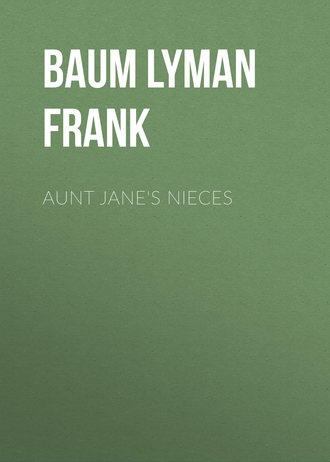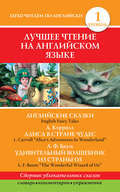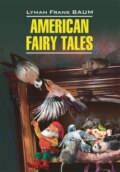
Лаймен Фрэнк Баум
Aunt Jane's Nieces
CHAPTER IV.
LOUISE MAKES A DISCOVERY
"How did you enjoy the reception, Louise?"
"Very well, mamma. But I made the discovery that my escort. Harry Wyndham, is only a poor cousin of the rich Wyndham family, and will never have a penny he doesn't earn himself."
"I knew that," said Mrs. Merrick. "But Harry has the entree into some very exclusive social circles. I hope you treated him nicely, Louise. He can be of use to us."
"Oh, yes, I think I interested him; but he's a very stupid boy. By the way, mamma, I had an adventure last evening, which I have had no time to tell you of before."
"Yes?"
"It has given me quite a shock. You noticed the maid you ordered to come from Madam Borne to dress my hair for the reception?"
"I merely saw her. Was she unsatisfactory?"
"She was very clever. I never looked prettier, I am sure. The maid is a little, demure thing, very young for such a position, and positively homely and common in appearance. But I hardly noticed her until she dropped a letter from her clothing. It fell just beside me, and I saw that it was addressed to no less a personage than my rich aunt, Miss Jane Merrick, at Elmhurst. Curious to know why a hair-dresser should be in correspondence with Aunt Jane, I managed to conceal the letter under my skirts until the maid was gone. Then I put it away until after the reception. It was sealed and stamped, all ready for the post, but I moistened the flap and easily opened it. Guess what I read?"
"I've no idea," replied Mrs. Merrick.
"Here it is," continued Louise, producing a letter and carefully unfolding it. "Listen to this, if you please: 'Aunt Jane.' She doesn't even say 'dear' or 'respected,' you observe."
'Your letter to me, asking me to visit you, is almost an insult after your years of silence and neglect and your refusals to assist my poor mother when she was in need. Thank God we can do without your friendship and assistance now, for my honored father, Major Gregory Doyle, is very prosperous and earns all we need. I return your check with my compliments. If you are really ill, I am sorry for you, and would go to nurse you were you not able to hire twenty nurses, each of whom would have fully as much love and far more respect for you than could ever
'Your indignant niece,
'Patricia Doyle.'
"What do you think of that, mamma?'"
"It's very strange, Louise. This hair-dresser is your own cousin."
"So it seems. And she must be poor, or she wouldn't go out as a sort of lady's maid. I remember scolding her severely for pulling my hair at one time, and she was as meek as Moses, and never answered a word."
"She has a temper though, as this letter proves," said Mrs. Merrick; "and I admire her for the stand she has taken."
"So do I," rejoined Louise with a laugh, "for it removes a rival from my path. You will notice that Aunt Jane has sent her a check for the same amount she sent me. Here it is, folded in the letter. Probably my other cousin, the De Graf girl, is likewise invited to Elmhurst? Aunt Jane wanted us all, to see what we were like, and perhaps to choose between us."
"Quite likely," said Mrs. Merrick, uneasily watching her daughter's face.
"That being the case," continued Louise, "I intend to enter the competition. With this child Patricia out of the way, it will be a simple duel with my unknown De Graf cousin for my aunt's favor, and the excitement will be agreeable even if I am worsted."
"There's no danger of that," said her mother, calmly. "And the stakes are high, Louise. I've learned that your Aunt Jane is rated as worth a half million dollars."
"They shall be mine," said the daughter, with assurance. "Unless, indeed, the De Graf girl is most wonderfully clever. What is her name?"
"Elizabeth, if I remember rightly. But I am not sure she is yet alive, my dear. I haven't heard of the De Grafs for a dozen years.'"
"Anyway I shall accept my Aunt Jane's invitation, and make the acceptance as sweet as Patricia Doyle's refusal is sour. Aunt Jane will be simply furious when she gets the little hair-dresser's note."
"Will you send it on?"
"Why not? It's only a question of resealing the envelope and mailing it. And it will be sure to settle Miss Doyle's chances of sharing the inheritance, for good and all."
"And the check?"
"Oh, I shall leave the check inside the envelope. It wouldn't be at all safe to cash it, you know."
"But if you took it out Jane would think the girl had kept tit money, after all, and would be even more incensed against her."
"No," said Louise, after a moment's thought, "I'll not do a single act of dishonesty that could ever by any chance be traced to my door. To be cunning, to be diplomatic, to play the game of life with the best cards we can draw, is every woman's privilege. But if I can't win honestly, mater dear, I'll quit the game, for even money can't compensate a girl for the loss of her self-respect."
Mrs. Merrick cast a fleeting glance at her daughter and smiled.
Perhaps the heroics of Louise did not greatly impress her.
CHAPTER V.
AUNT JANE
"Lift me up, Phibbs – no, not that way! Confound your awkwardness – do you want to break my back? There! That's better. Now the pillow at my head. Oh – h. What are you blinking at, you old owl?"
"Are you better this morning, Miss Jane?" asked the attendant, with grave deference.
"No; I'm worse."
"You look brighter, Miss Jane."
"Don't be stupid, Martha Phibbs. I know how I am, better than any doctor, and I tell you I'm on my last legs."
"Anything unusual, Miss?"
"Of course. I can't be on my last legs regularly, can I?"
"I hope not, Miss."
"What do you mean by that? Are you trying to insult me, now that I'm weak and helpless? Answer me, you gibbering idiot!"
"I'm sure you'll feel better soon, Miss. Can't I wheel you into the garden? It's a beautiful day, and quite sunny and warm already."
"Be quick about it, then; and don't tire me out with your eternal doddering. When a thing has to be done, do it. That's my motto."
"Yes, Miss Jane."
Slowly and with care the old attendant wheeled her mistress's invalid chair through the doorway of the room, along a stately passage, and out upon a broad piazza at the back of the mansion. Here were extensive and carefully tended gardens, and the balmy morning air was redolent with the odor of flowers.
Jane Merrick sniffed the fragrance with evident enjoyment, and her sharp grey eyes sparkled as she allowed them to roam over the gorgeous expanse of colors spread out before her.
"I'll go down, I guess, Phibbs. This may be my last day on earth, and I'll spend an hour with my flowers before I bid them good-bye forever."
Phibbs pulled a bell-cord, and a soft faraway jingle was heard. Then an old man came slowly around the corner of the house. His bare head was quite bald. He wore a short canvas apron and carried pruning-shears in one hand. Without a word of greeting to his mistress or scarce a glance at her half recumbent form, he mounted the steps of the piazza and assisted Phibbs to lift the chair to the ground.
"How are the roses coming on, James?"
"Poorly, Miss," he answered, and turning his back returned to his work around the corner. If he was surly, Miss Jane seemed not to mind it. Her glance even softened a moment as she followed his retreating form.
But now she was revelling amongst the flowers, which she seemed to love passionately. Phibbs wheeled her slowly along the narrow paths between the beds, and she stopped frequently to fondle a blossom or pull away a dead leaf or twig from a bush. The roses were magnificent, in spite of the old gardener's croaking, and the sun was warm and grateful and the hum of the bees musical and sweet.
"It's hard to die and leave all this, Phibbs," said the old woman, a catch in her voice. "But it's got to be done."
"Not for a while yet, I hope, Miss Jane."
"It won't be long, Phibbs. But I must try to live until my nieces come, and I can decide which of them is most worthy to care for the old place when I am gone."
"Yes, Miss."
"I've heard from two of them, already. They jumped at the bait I held out quickly enough; but that's only natural. And the letters are very sensible ones, too. Elizabeth DeGraf says she will be glad to come, and thanks me for inviting her. Louise Merrick is glad to come, also, but hopes I am deceived about my health and that she will make me more than one visit after we become friends. A very proper feeling; but I'm not deceived, Phibbs. My end's in plain sight."
"Yes, Miss Jane."
"And somebody's got to have my money and dear Elmhurst when I'm through with them. Who will it be, Phibbs?"
"I'm sure I don't know, Miss."
"Nor do I. The money's mine, and I can do what I please with it; and
I'm under no obligation to anyone."
"Except Kenneth," said a soft voice behind her.
Jane Merrick gave a start at the interruption and turned red and angry as, without looking around, she answered:
"Stuff and nonsense! I know my duties and my business, Silas Watson."
"To be sure," said a little, withered man, passing around the chair and facing the old woman with an humble, deprecating air. He was clothed in black, and his smooth-shaven, deeply lined face was pleasant of expression and not without power and shrewd intelligence. The eyes, however, were concealed by heavy-rimmed spectacles, and his manner was somewhat shy and reserved. However, he did not hesitate to speak frankly to his old friend, nor minded in the least if he aroused her ire.
"No one knows better than you, dear Miss Jane, her duties and obligations; and no one performs them more religiously. But your recent acts, I confess, puzzle me. Why should you choose from a lot of inexperienced, incompetent girls a successor to Thomas Bradley's fortune, when he especially requested you in his will to look after any of his relatives, should they need assistance? Kenneth Forbes, his own nephew, was born after Tom's death, to be sure; but he is alone in the world now, an orphan, and has had no advantages to help him along in life since his mother's death eight years ago. I think Tom Bradley must have had a premonition of what was to come even though his sister was not married at the time of his death, and I am sure he would want you to help Kenneth now."
"He placed me under no obligations to leave the boy any money," snapped the old woman, white with suppressed wrath, "you know that well enough, Silas Watson, for you drew up the will."
The old gentleman slowly drew a pattern upon the gravelled walk with the end of his walking-stick.
"Yes, I drew up the will," he said, deliberately, "and I remember that he gave to you, his betrothed bride, all that he possessed – gave it gladly and lovingly, and without reserve. He was very fond of you, Miss Jane. But perhaps his conscience pricked him a bit, after all, for he added the words: 'I shall expect you to look after the welfare of my only relative, my sister. Katherine Bradley – or any of her heirs.' It appears to me, Miss Jane, that that is a distinct obligation. The boy is now sixteen and as fine a fellow as one often meets."
"Bah! An imbecile – an awkward, ill-mannered brat who is only fit for a stable-boy! I know him, Silas, and I know he'll never amount to a hill of beans. Leave him my money? Not if I hadn't a relative on earth!"
"You misjudge him, Jane. Kenneth is all right if you'll treat him decently. But he won't stand your abuse and I don't think the less of him for that."
"Why abuse? Haven't I given him a home and an education, all because Thomas asked me to look after his relatives? And he's been rebellious and pig-headed and sullen in return for my kindness, so naturally there's little love lost between us."
"You resented your one obligation, Jane; and although you fulfilled it to the letter you did not in the spirit of Tom Bradley's request. I don't blame the boy for not liking you."
"Sir!"
"All right, Jane; fly at me if you will," said the little man, with a smile; "but I intend to tell you frankly what I think of your actions, just as long as we remain friends."
Her stern brows unbent a trifle.
"That's why we are friends, Silas; and it's useless to quarrel with you now that I'm on my last legs. A few days more will end me, I'm positive; so bear with me a little longer, my friend."
He took her withered hand in his and kissed it gently.
"You're not so very bad, Jane," said he, "and I'm almost sure you will be with us for a long time to come. But you're more nervous and irritable than usual, I'll admit, and I fear this invasion of your nieces won't be good for you. Are they really coming?"
"Two of them are, I'm sure, for they've accepted my invitation," she replied.
"Here's a letter that just arrived," he said, taking it from his pocket. "Perhaps it contains news from the third niece."
"My glasses, Phibbs!" cried Miss Jane, eagerly, and the attendant started briskly for the house to get them.
"What do you know about these girls?" asked the old lawyer curiously.
"Nothing whatever. I scarcely knew of their existence until you hunted them out for me and found they were alive. But I'm going to know them, and study them, and the one that's most capable and deserving shall have my property."
Mr. Watson sighed.
"And Kenneth?" he asked.
"I'll provide an annuity for the boy, although it's more than he deserves. When I realized that death was creeping upon me I felt a strange desire to bequeath my fortune to one of my own flesh and blood. Perhaps I didn't treat my brothers and sisters generously in the old days, Silas."
"Perhaps not," he answered.
"So I'll make amends to one of their children. That is, if any one of the three nieces should prove worthy."
"I see. But if neither of the three is worthy?"
"Then I'll leave every cent to charity – except Kenneth's annuity."
The lawyer smiled.
"Let us hope," said he, "that they will prove all you desire. It would break my heart, Jane, to see Elmhurst turned into a hospital."
Phibbs arrived with the spectacles, and Jane Merrick read her letter, her face growing harder with every line she mastered. Then she crumpled the paper fiercely in both hands, and a moment later smoothed it out carefully and replaced it in the envelope.
Silas Watson had watched her silently.
"Well," said he, at last, "another acceptance?"
"No, a refusal," said she. "A refusal from the Irishman's daughter,
Patricia Doyle."
"That's bad," he remarked, but in a tone of relief.
"I don't see it in that light at all," replied Miss Jane. "The girl is right. It's the sort of letter I'd have written myself, under the circumstances. I'll write again, Silas, and humble myself, and try to get her to come."
"You surprise me!" said the lawyer.
"I surprise myself," retorted the old woman, "but I mean to know more of this Patricia Doyle. Perhaps I've found a gold mine, Silas Watson!"
CHAPTER VI.
THE BOY
Leaving the mistress of Elmhurst among her flowers, Silas Watson walked slowly and thoughtfully along the paths until he reached the extreme left wing of the rambling old mansion. Here, half hidden by tangled vines of climbing roses, he came to a flight of steps leading to an iron-railed balcony, and beyond this was a narrow stairway to the rooms in the upper part of the wing.
Miss Merrick, however ungenerous she might have been to others, had always maintained Elmhurst in a fairly lavish manner. There were plenty of servants to look after the house and gardens, and there were good horses in the stables. Whenever her health permitted she dined in state each evening in the great dining-room, solitary and dignified, unless on rare occasions her one familiar, Silas Watson, occupied the seat opposite her. "The boy," as he was contemptuously called, was never permitted to enter this room. Indeed, it would be difficult to define exactly Kenneth Forbes' position at Elmhurst. He had lived there ever since his mother's death, when, a silent and unattractive lad of eight, Mr. Watson had brought him to Jane Merrick and insisted upon her providing a home for Tom Bradley's orphaned nephew.
She accepted the obligation reluctantly enough, giving the child a small room in the left wing, as far removed from her own apartments as possible, and transferring all details of his care to Misery Agnew, the old housekeeper. Misery endeavored to "do her duty" by the boy, but appreciating the scant courtesy with which he was treated by her mistress, it is not surprising the old woman regarded him merely as a dependent and left him mostly to his own devices.
Kenneth, even in his first days at Elmhurst, knew that his presence was disagreeable to Miss Jane, and as the years dragged on he grew shy and retiring, longing to break away from his unpleasant surroundings, but knowing of no other place where he would be more welcome. His only real friend was the lawyer, who neglected no opportunity to visit the boy and chat with him, in his cheery manner. Mr. Watson also arranged with the son of the village curate to tutor Kenneth and prepare him for college; but either the tutor was incompetent or the pupil did not apply himself, for at twenty Kenneth Forbes was very ignorant, indeed, and seemed not to apply himself properly to his books.
He was short of stature and thin, with a sad drawn face and manners that even his staunch friend, Silas Watson, admitted were awkward and unprepossessing. What he might have been under different conditions or with different treatment, could only be imagined. Slowly climbing the stairs to the little room Kenneth inhabited, Mr. Watson was forced to conclude, with a sigh of regret, that he could not blame Miss Jane for wishing to find a more desirable heir to her estate than this graceless, sullen youth who had been thrust upon her by a thoughtless request contained in the will of her dead lover – a request that she seemed determined to fulfil literally, as it only required her to "look after" Tom's relatives and did not oblige her to leave Kenneth her property.
Yet, strange as it may seem, the old lawyer was exceedingly fond of the boy, and longed to see him the master of Elmhurst. Sometimes, when they were alone, Kenneth forgot his sense of injury and dependence, and spoke so well and with such animation that Mr. Watson was astonished, and believed that hidden underneath the mask of reserve was another entirely different personality, that in the years to come might change the entire nature of the neglected youth and win for him the respect and admiration of the world. But these fits of brightness and geniality were rare. Only the lawyer had as yet discovered them.
Today he found the boy lying listlessly upon the window-seat, an open book in his hand, but his eyes fixed dreamily upon the grove of huge elm trees that covered the distant hills.
"Morning, Ken," said he, briefly, sitting beside his young friend and taking the book in his own hand. The margins of the printed pages were fairly covered with drawings of every description. The far away trees were there and the near-by rose gardens. There was a cat spitting at an angry dog, caricatures of old Misery and James, the gardener, and of Aunt Jane and even Silas Watson himself – all so clearly depicted that the lawyer suddenly wondered if they were not clever, and an evidence of genius. But the boy turned to look at him, and the next moment seized the book from his grasp and sent it flying through the open window, uttering at the same time a rude exclamation of impatience.
The lawyer quietly lighted his pipe.
"Why did you do that, Kenneth?" he asked. "The pictures are clever enough to be preserved. I did not know you have a talent for drawing."
The boy glanced at him, but answered nothing, and the lawyer thought best not to pursue the subject After smoking a moment in silence he remarked:
"Your aunt is failing fast." Although no relative, Kenneth had been accustomed to speak of Jane Merrick as his aunt.
Getting neither word nor look in reply the lawyer presently continued:
"I do not think she will live much longer."
The boy stared from the window and drummed on the sill with his fingers.
"When she dies," said Mr. Watson, in a musing tone, "there will be a new mistress at Elmhurst and you will have to move out."
The boy now turned to look at him, enquiringly.
"You are twenty, and you are not ready for college. You would be of no use in the commercial world. You have not even the capacity to become a clerk. What will you do, Kenneth? Where will you go?"
The boy shrugged his shoulders.
"When will Aunt Jane die?" he asked.
"I hope she will live many days yet. She may die tomorrow."
"When she does, I'll answer your question." said the boy, roughly. "When I'm turned out of this place – which is part prison and part paradise – I'll do something. I don't know what, and I won't bother about it till the time comes. But I'll do something."
"Could you earn a living?" asked the old lawyer.
"Perhaps not; but I'll get one. Will I be a beggar?"
"I don't know. It depends on whether Aunt Jane leaves you anything in her will."
"I hope she won't leave me a cent!" cried the boy, with sudden fierceness. "I hate her, and will be glad when she is dead and out of my way!"
"Kenneth – Kenneth, lad!"
"I hate her!" he persisted, with blazing eyes. "She has insulted me, scorned me, humiliated me every moment since I have known her. I'll be glad to have her die, and I don't want a cent of her miserable money."
"Money," remarked the old man, knocking the ashes from his pipe, "is very necessary to one who is incompetent to earn his salt. And the money she leaves you – if she really does leave you any – won't be her's, remember, but your Uncle Tom's."
"Uncle Tom was good to my father," said the boy, softening.
"Well, Uncle Tom gave his money to Aunt Jane, whom he had expected to marry; but he asked her to care for his relatives, and she'll doubtless give you enough to live on. But the place will go to some one else, and that means you must move on."
"Who will have Elmhurst?" asked the boy.
"One of your aunt's nieces, probably. She has three, it seems, all of them young girls, and she has invited them to come here to visit her."
"Girls! Girls at Elmhurst?" cried the boy, shrinking back with a look of terror in his eyes.
"To be sure. One of the nieces, it seems, refuses to come; but there will be two of them to scramble for your aunt's affection."
"She has none," declared the boy.
"Or her money, which is the same thing. The one she likes the best will get the estate."
Kenneth smiled, and with the change of expression his face lighted wonderfully.
"Poor Aunt!" he said. "Almost I am tempted to be sorry for her. Two girls – fighting one against the other for Elmhurst – and both fawning before a cruel and malicious old woman who could never love anyone but herself."
"And her flowers," suggested the lawyer.
"Oh, yes; and perhaps James. Tell me, why should she love James, who is a mere gardener, and hate me?"
"James tends the flowers, and the flowers are Jane Merrick's very life. Isn't that the explanation?"
"I don't know."
"The girls need not worry you, Kenneth. It will be easy for you to keep out of their way."
"When will they come?"
"Next week, I believe."
The boy looked around helplessly, with the air of a caged tiger.
"Perhaps they won't know I'm here," he said.
"Perhaps not. I'll tell Misery to bring all your meals to this room, and no one ever comes to this end of the garden. But if they find you, Kenneth, and scare you out of your den, run over to me, and I'll keep you safe until the girls are gone."
"Thank you, Mr. Watson," more graciously than was his wont. "It isn't that I'm afraid of girls, you know; but they may want to insult me, just as their aunt does, and I couldn't bear any more cruelty."
"I know nothing about them," said the lawyer, "so I can't vouch in any way for Aunt Jane's nieces. But they are young, and it is probable they'll be as shy and uncomfortable here at Elmhurst as you are yourself. And after all, Kenneth boy, the most important thing just now is your own future. What in the world is to become of you?"
"Oh, that," answered the boy, relapsing into his sullen mood; "I can't see that it matters much one way or another. Anyhow, I'll not bother my head about it until the time comes and as far as you're concerned, it's none of your business."







